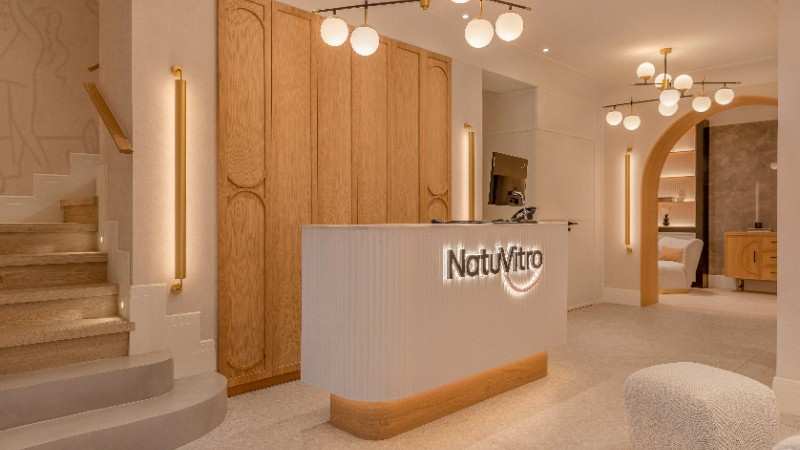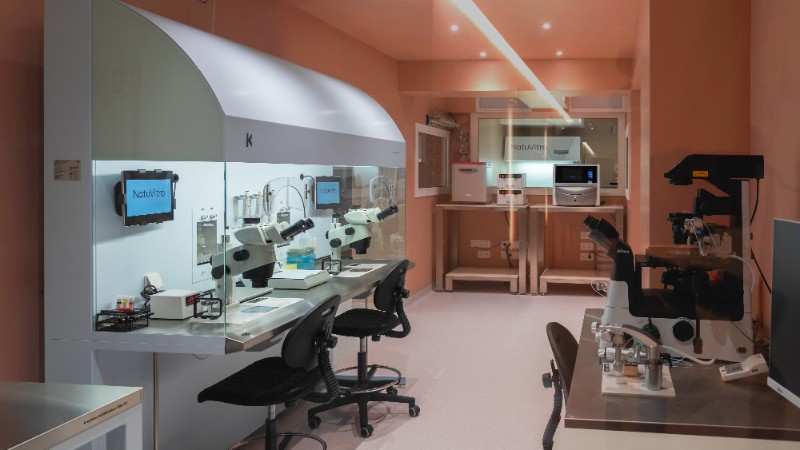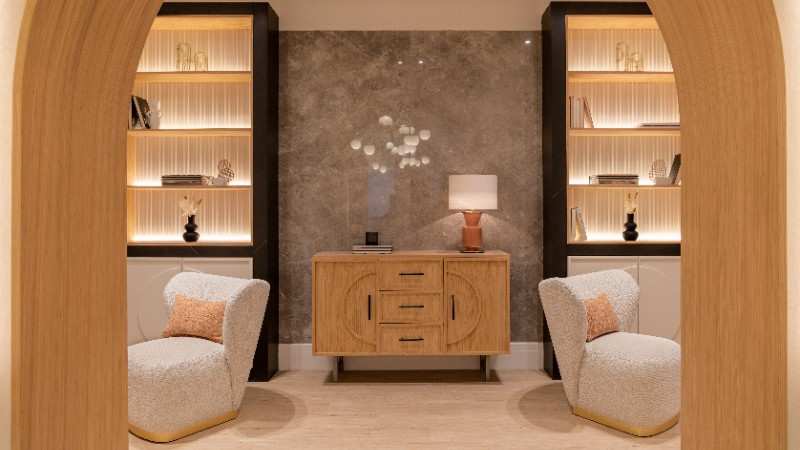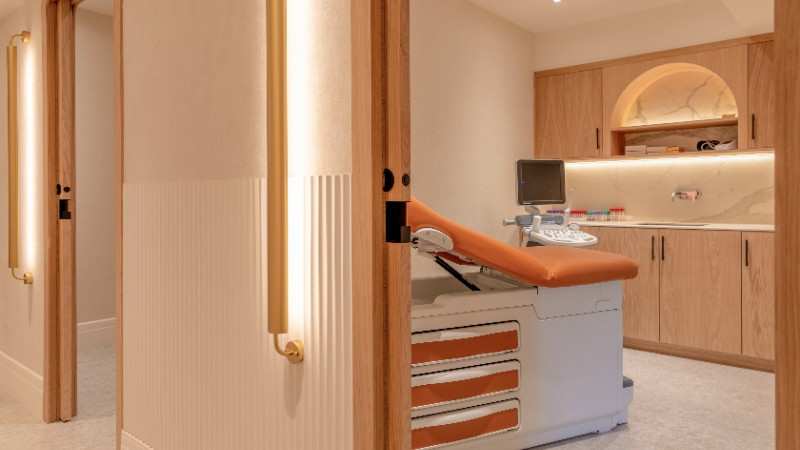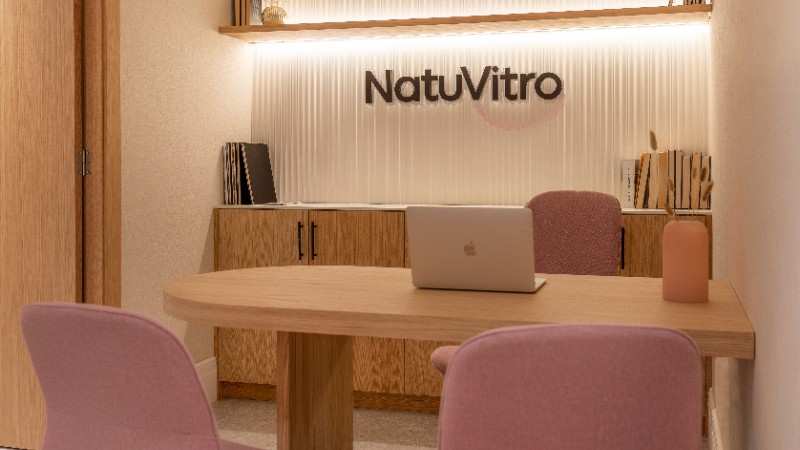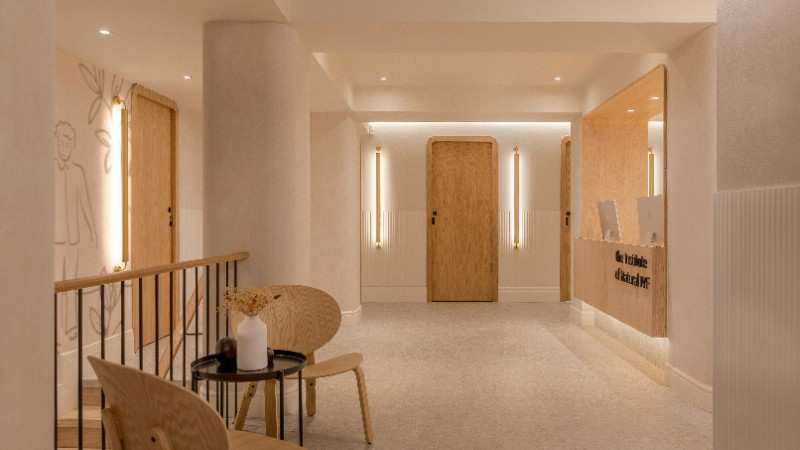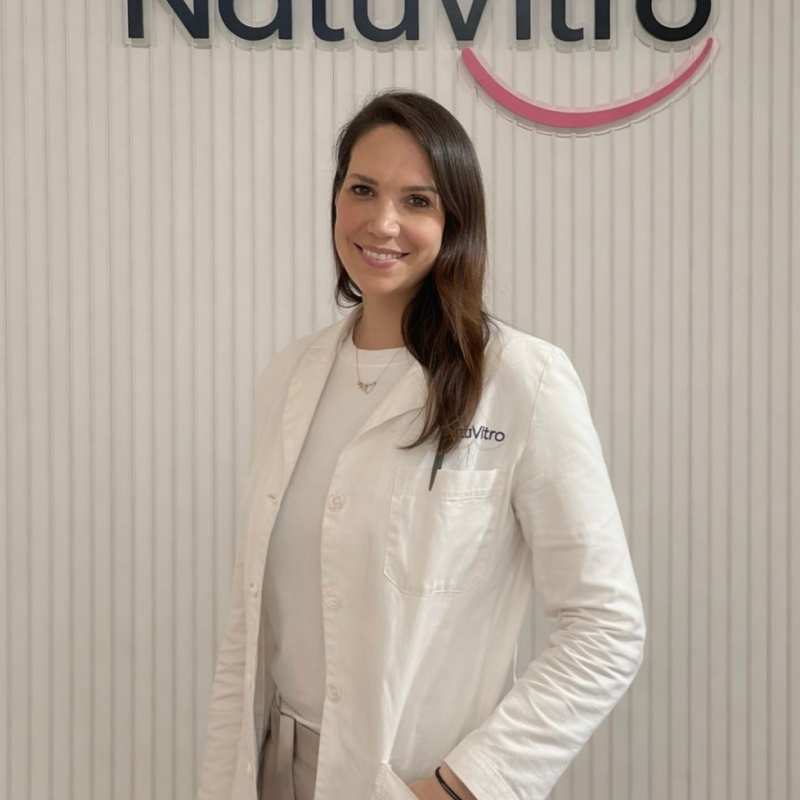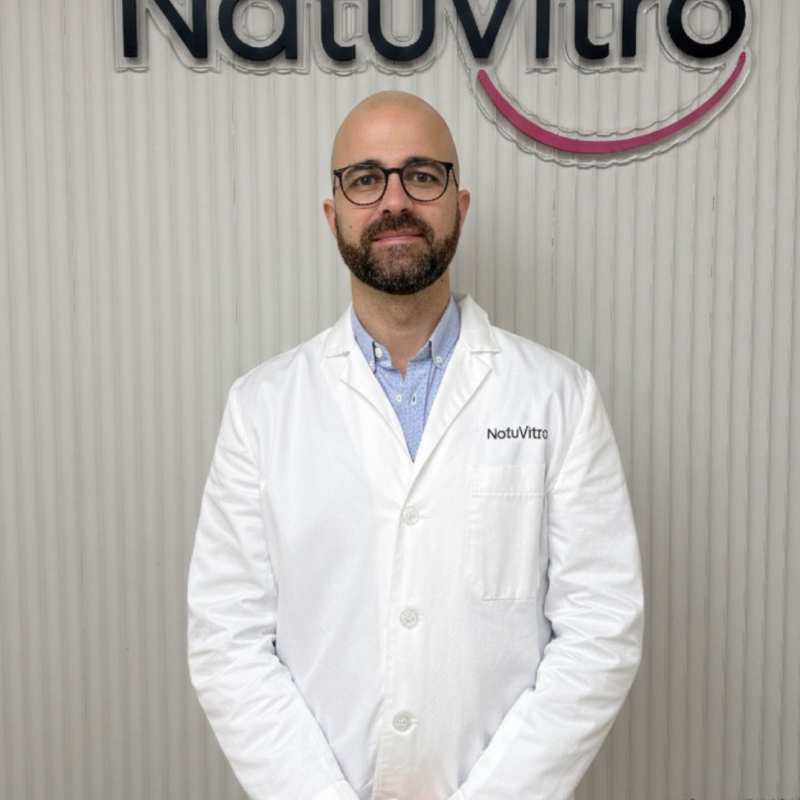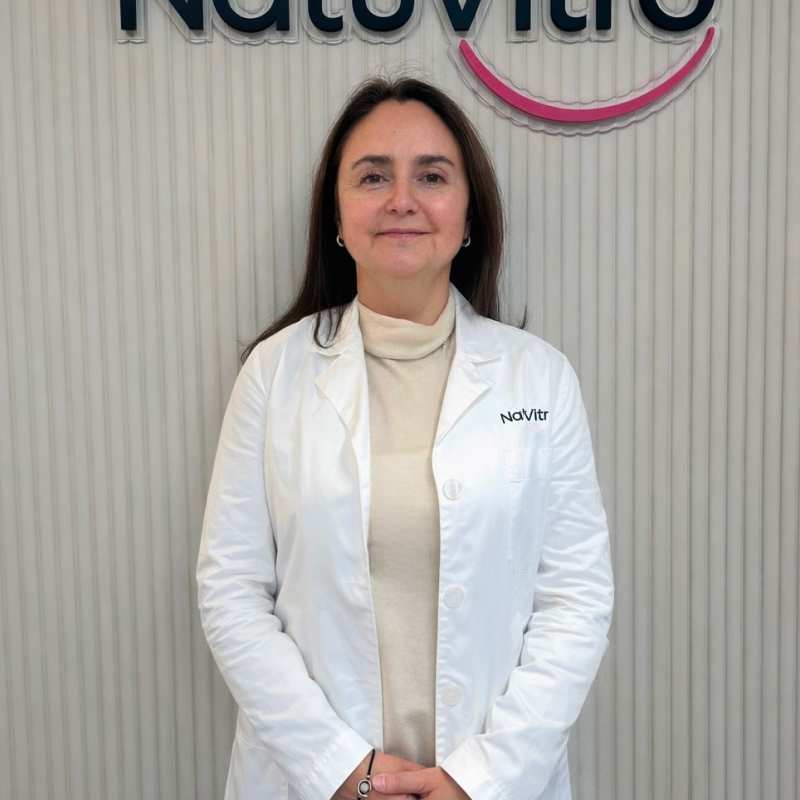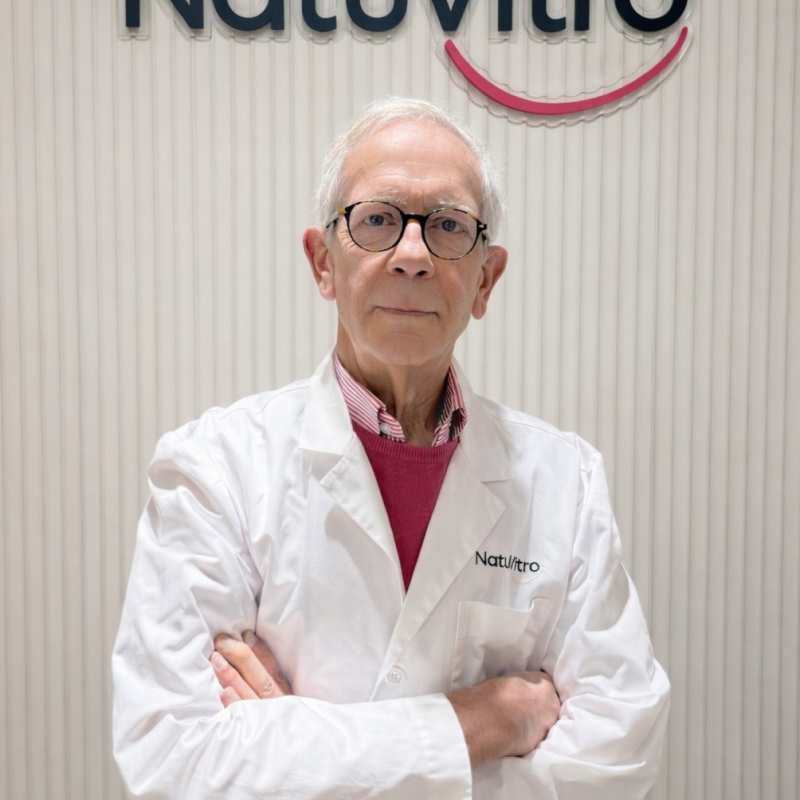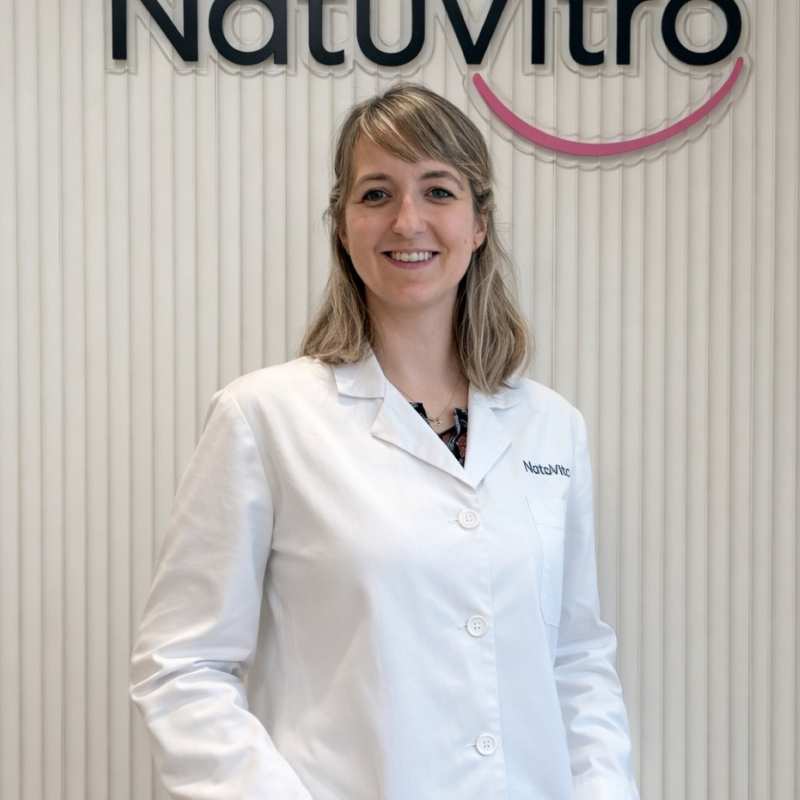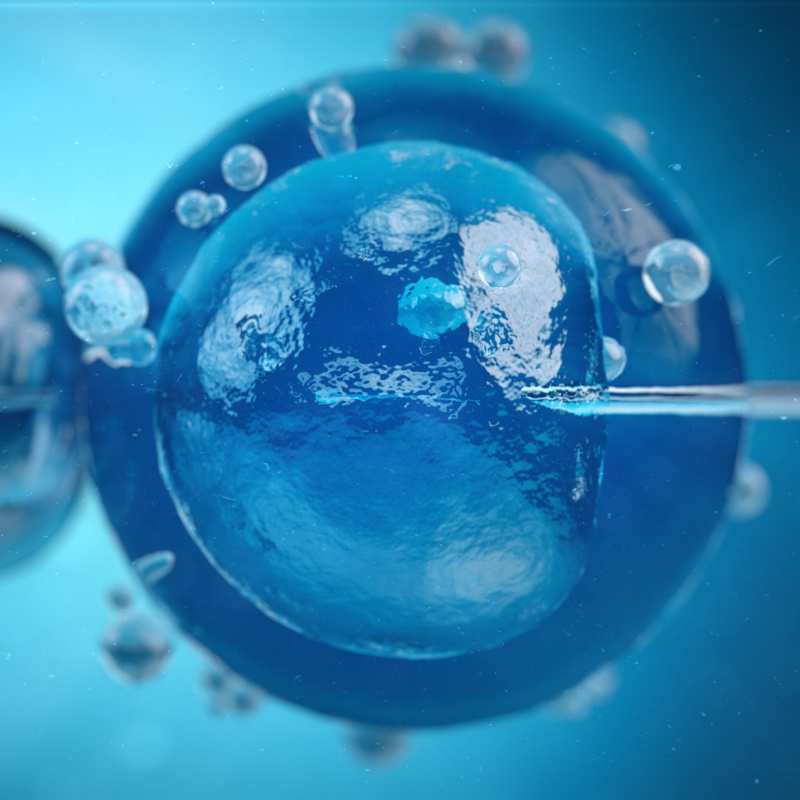
Importance of Ovarian Reserve
In our reproductive medicine clinic, we pay special attention to a comprehensive assessment of ovarian reserve, one of the key factors in female fertility. We evaluate it as part of a personalized treatment strategy, using the most modern diagnostic methods. During the initial consultation, the patient undergoes an in-depth diagnosis, including an analysis of the AMH level, an ultrasound assessment of the antral follicle count, and a hormonal profile study. This approach not only detects a possible decline in reserve but also determines the optimal ways to support and restore reproductive potential. For a successful conception, whether naturally or with assisted reproductive techniques (ART), it is essential to have good-quality and viable eggs. Oocyte reserve forms in women from the intrauterine stage and does not renew throughout life. From birth, this reserve gradually decreases, and a notable decline in fertility generally begins around age 35. However, in some women, the initial ovarian reserve is below normal, complicating pregnancy planning.
In our blog, we have discussed in detail the topic: « Functional follicles created for the first time from stem cells ».
Premature Ovarian Reserve Decline
This condition is characterized by an accelerated decrease, compared to the normal, in the number and quality of eggs. Reproductive function and a regular cycle are nevertheless preserved. Often, women discover this problem only during an examination for conception difficulties, which is why we strongly recommend not delaying a comprehensive diagnosis.
Premature Ovarian Exhaustion
This is a more severe form of the disorder, in which the number of eggs decreases significantly from age 40 or earlier. Besides conception difficulties, irregular menstruation, hormonal changes, and characteristic menopause symptoms may appear: hot flashes, mucous membrane dryness, decreased bone density. In such cases, it is especially important to consult a doctor in a timely manner to define an individual treatment strategy and preserve reproductive potential.
Important facts about ovarian reserve :
- It forms before birth and does not renew.
- During the reproductive period, about 300 to 500 ovulations occur.
- At birth, there are 1 to 2 million eggs, of which 300,000 to 500,000 remain at the first menstruation.
- With each cycle, several hundred follicles are used, but ovulation occurs in only one.
- At menopause, about 1,000 to 1,500 follicles remain, most of which are already inactive.
Exosomes
Exosomes are microscopic extracellular vesicles containing proteins, lipids, and RNA that transmit signals between cells. They participate in regulating regenerative processes and tissue restoration. In reproductive medicine, exosome therapy could help improve ovarian function in cases of decreased ovarian reserve, stimulate growth and maturation of the endometrium in cases of hypoplasia, as well as treat chronic endometritis by modulating immune response and reducing inflammation.
Exosomes are also used in cardiology for myocardium regeneration, in traumatology and burn medicine to accelerate healing, in orthopedics for joint regeneration, in oncology within immunotherapy, as well as a platform for drug delivery and genetic material transfer.
Mesenchymal Stem Cells (MSCs)
MSCs are multipotent cells capable of transforming into different tissue types. They possess regenerative, trophic, and immunomodulatory properties. In reproductive medicine, MSCs are used to restore ovarian structure and function, improve oocyte quality, and stimulate endometrial growth.
Indications for using MSCs and exosomes :
- Premature decrease or exhaustion of ovarian reserve.
- Low AMH after surgery or treatment.
- Poor quality or disrupted maturation of oocytes.
- Endometrial atrophy.
- Male infertility due to testicular cell damage.
Advantages
- Improvement of egg quality.
- Activation of primordial follicles.
- Restoration of hormonal balance.
- Possibility to obtain own oocytes without donation.
- Minimal risk of rejection.
How the treatment is performed
The method is minimally invasive and outpatient. Under light sedation (20 to 30 minutes), the doctor injects the prepared biological material into ovarian tissue under ultrasound guidance. In case of endometrial atrophy, exosomes are injected at the beginning of the proliferative phase of the cycle (7 to 10 days). When using endometrial stem cells, a biopsy with a pipelle is performed first, then the cells are cultured in the laboratory (about three weeks) and transferred into the uterus at the optimal phase.
Mechanism of action
Exosomes transmit signals between cells, stimulate angiogenesis, reduce apoptosis, protect cells against free radicals, and regulate immune response. MSCs improve the follicular microenvironment, activate local ovarian stem cells, restore damaged structures, harmonize hormonal background, and prepare the endometrium for implantation.
Obtaining MSCs
Sources of MSCs include bone marrow, adipose tissue, blood, umbilical cord tissue, and endometrium. Most often, to restore ovarian function, MSCs derived from the patient's adipose tissue are used. To restore the endometrium, MSCs from the endometrial tissue are used, ensuring maximum compatibility.
Perspectives
The use of MSCs and exosomes is one of the most promising fields in infertility treatment. This method requires a personalized approach and thorough examination. It can significantly improve oocyte quality, endometrial condition, and increase the chances of successful implantation.
Within IVF programs (in vitro fertilization), MSCs can help improve ovarian response to stimulation, increase the number of mature and quality eggs, and enhance chances of obtaining high-quality embryos. In the case of egg donation IVF, MSCs can optimize endometrial condition, thus increasing receptivity and the chances of successful embryo implantation. In scenarios of double donation IVF (eggs and donor sperm), MSCs can be used to restore and prepare the endometrium in women with significant hypoplasia or scarred uterine mucosa, thereby increasing pregnancy chances even in complex clinical situations.
Our experience with these technologies allows us to select the optimal protocols for each patient, taking into account their unique clinical situation and the chosen ART strategy.
The NatuVitro Clinic is at the forefront of medical innovation, implementing the most modern methods and technologies in reproductive medicine, offering patients the best chances of success and a high level of medical care.
Our experts are ready to examine your case history, clarify your choices, and address every question you have.
Don't wait to make informed decisions – your personalized guidance awaits!
- Spain (España)+34
- France (La France)+33
- Italy (Italia)+39
- United Kingdom+44
- United States+1
- Belgium (België)+32
- Switzerland (Schweiz/Suisse)+41
- Germany (Deutschland)+49
- Netherlands (Nederland)+31
- Afghanistan (افغانستان)+93
- Albania (Shqipëri)+355
- Algeria (الجزائر)+213
- American Samoa+1
- Andorra+376
- Angola+244
- Anguilla+1
- Antigua and Barbuda+1
- Argentina+54
- Armenia (Հայաստան)+374
- Aruba+297
- Ascension Island+247
- Australia+61
- Austria (Österreich)+43
- Azerbaijan (Azərbaycan)+994
- Bahamas+1
- Bahrain (البحرين)+973
- Bangladesh (বাংলাদেশ)+880
- Barbados+1
- Belarus (Беларусь)+375
- Belize+501
- Benin (Bénin)+229
- Bermuda+1
- Bhutan (འབྲུག)+975
- Bolivia+591
- Bosnia and Herzegovina (Босна и Херцеговина)+387
- Botswana+267
- Brazil (Brasil)+55
- British Indian Ocean Territory+246
- British Virgin Islands+1
- Brunei+673
- Bulgaria (България)+359
- Burkina Faso+226
- Burundi (Uburundi)+257
- Cambodia (កម្ពុជា)+855
- Cameroon (Cameroun)+237
- Canada+1
- Cape Verde (Kabu Verdi)+238
- Caribbean Netherlands+599
- Cayman Islands+1
- Central African Republic (République centrafricaine)+236
- Chad (Tchad)+235
- Chile+56
- China (中国)+86
- Christmas Island+61
- Cocos (Keeling) Islands+61
- Colombia+57
- Comoros (جزر القمر)+269
- Congo (DRC) (Jamhuri ya Kidemokrasia ya Kongo)+243
- Congo (Republic) (Congo-Brazzaville)+242
- Cook Islands+682
- Costa Rica+506
- Côte d’Ivoire+225
- Croatia (Hrvatska)+385
- Cuba+53
- Curaçao+599
- Cyprus (Κύπρος)+357
- Czech Republic (Česká republika)+420
- Denmark (Danmark)+45
- Djibouti+253
- Dominica+1
- Dominican Republic (República Dominicana)+1
- Ecuador+593
- Egypt (مصر)+20
- El Salvador+503
- Equatorial Guinea (Guinea Ecuatorial)+240
- Eritrea+291
- Estonia (Eesti)+372
- Eswatini+268
- Ethiopia+251
- Falkland Islands (Islas Malvinas)+500
- Faroe Islands (Føroyar)+298
- Fiji+679
- Finland (Suomi)+358
- French Guiana (Guyane française)+594
- French Polynesia (Polynésie française)+689
- Gabon+241
- Gambia+220
- Georgia (საქართველო)+995
- Ghana (Gaana)+233
- Gibraltar+350
- Greece (Ελλάδα)+30
- Greenland (Kalaallit Nunaat)+299
- Grenada+1
- Guadeloupe+590
- Guam+1
- Guatemala+502
- Guernsey+44
- Guinea (Guinée)+224
- Guinea-Bissau (Guiné Bissau)+245
- Guyana+592
- Haiti+509
- Honduras+504
- Hong Kong (香港)+852
- Hungary (Magyarország)+36
- Iceland (Ísland)+354
- India (भारत)+91
- Indonesia+62
- Iran (ایران)+98
- Iraq (العراق)+964
- Ireland+353
- Isle of Man+44
- Israel (ישראל)+972
- Italy (Italia)+39
- Jamaica+1
- Japan (日本)+81
- Jersey+44
- Jordan (الأردن)+962
- Kazakhstan (Казахстан)+7
- Kenya+254
- Kiribati+686
- Kosovo+383
- Kuwait (الكويت)+965
- Kyrgyzstan (Кыргызстан)+996
- Laos (ລາວ)+856
- Latvia (Latvija)+371
- Lebanon (لبنان)+961
- Lesotho+266
- Liberia+231
- Libya (ليبيا)+218
- Liechtenstein+423
- Lithuania (Lietuva)+370
- Luxembourg+352
- Macau (澳門)+853
- North Macedonia (Македонија)+389
- Madagascar (Madagasikara)+261
- Malawi+265
- Malaysia+60
- Maldives+960
- Mali+223
- Malta+356
- Marshall Islands+692
- Martinique+596
- Mauritania (موريتانيا)+222
- Mauritius (Moris)+230
- Mayotte+262
- Mexico (México)+52
- Micronesia+691
- Moldova (Republica Moldova)+373
- Monaco+377
- Mongolia (Монгол)+976
- Montenegro (Crna Gora)+382
- Montserrat+1
- Morocco (المغرب)+212
- Mozambique (Moçambique)+258
- Myanmar (Burma) (မြန်မာ)+95
- Namibia (Namibië)+264
- Nauru+674
- Nepal (नेपाल)+977
- New Caledonia (Nouvelle-Calédonie)+687
- New Zealand+64
- Nicaragua+505
- Niger (Nijar)+227
- Nigeria+234
- Niue+683
- Norfolk Island+672
- North Korea (조선 민주주의 인민 공화국)+850
- Northern Mariana Islands+1
- Norway (Norge)+47
- Oman (عُمان)+968
- Pakistan (پاکستان)+92
- Palau+680
- Palestine (فلسطين)+970
- Panama (Panamá)+507
- Papua New Guinea+675
- Paraguay+595
- Peru (Perú)+51
- Philippines+63
- Poland (Polska)+48
- Portugal+351
- Puerto Rico+1
- Qatar (قطر)+974
- Réunion (La Réunion)+262
- Romania (România)+40
- Russia (Россия)+7
- Rwanda+250
- Saint Barthélemy+590
- Saint Helena+290
- Saint Kitts and Nevis+1
- Saint Lucia+1
- Saint Martin (Saint-Martin (partie française))+590
- Saint Pierre and Miquelon (Saint-Pierre-et-Miquelon)+508
- Saint Vincent and the Grenadines+1
- Samoa+685
- San Marino+378
- São Tomé and Príncipe (São Tomé e Príncipe)+239
- Saudi Arabia (المملكة العربية السعودية)+966
- Senegal (Sénégal)+221
- Serbia (Србија)+381
- Seychelles+248
- Sierra Leone+232
- Singapore+65
- Sint Maarten+1
- Slovakia (Slovensko)+421
- Slovenia (Slovenija)+386
- Solomon Islands+677
- Somalia (Soomaaliya)+252
- South Africa+27
- South Korea (대한민국)+82
- South Sudan (جنوب السودان)+211
- Spain (España)+34
- Sri Lanka (ශ්රී ලංකාව)+94
- Sudan (السودان)+249
- Suriname+597
- Svalbard and Jan Mayen+47
- Sweden (Sverige)+46
- Syria (سوريا)+963
- Taiwan (台灣)+886
- Tajikistan+992
- Tanzania+255
- Thailand (ไทย)+66
- Timor-Leste+670
- Togo+228
- Tokelau+690
- Tonga+676
- Trinidad and Tobago+1
- Tunisia (تونس)+216
- Turkey (Türkiye)+90
- Turkmenistan+993
- Turks and Caicos Islands+1
- Tuvalu+688
- U.S. Virgin Islands+1
- Uganda+256
- Ukraine (Україна)+380
- United Arab Emirates (الإمارات العربية المتحدة)+971
- Uruguay+598
- Uzbekistan (Oʻzbekiston)+998
- Vanuatu+678
- Vatican City (Città del Vaticano)+39
- Venezuela+58
- Vietnam (Việt Nam)+84
- Wallis and Futuna (Wallis-et-Futuna)+681
- Western Sahara (الصحراء الغربية)+212
- Yemen (اليمن)+967
- Zambia+260
- Zimbabwe+263
- Åland Islands+358
Visit our clinic
Location
Call us now
Leave a message
